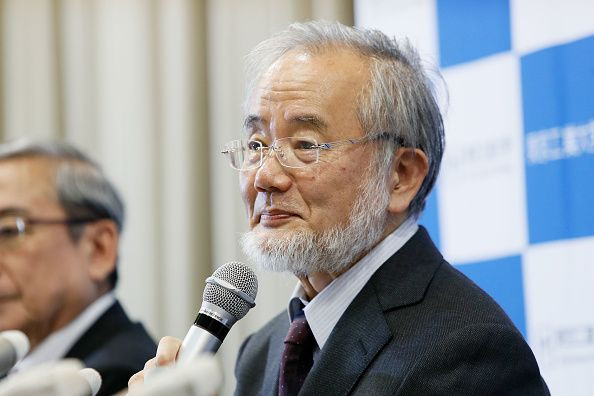What Is Cellular Recycling? Scientist Wins Nobel Prize For Discoveries on Autophagy

On Monday, it was announced that Tokyo-based cell biologist Yoshinori Ohsumi has received the 2016 Nobel Prize in physiology or science for his research on the cellular “recycling” process known as autophagy. Ohsumi’s discoveries, made over the course of decades of research, are paving the way for new approaches to treating diseases, from cancer to neurodegenerative illnesses.
Autophagy is a method for breaking down and recycling large pieces of cellular “junk” — which could include clusters of damaged proteins or worn-out organelles. If a cell doesn’t recycle enough, it can result in a buildup of cellular trash, which then leads to neurological diseases such as Alzheimer’s and Parkinson’s. Meanwhile, too much recycling has been linked to cancer, Science News reported.
“The process of autophagy that [Ohsumi] discovered is now part of the fabric of modern cell biology and medicine,” Dr. Jeremy Berg, editor of the journal Science Magazine, told the Los Angeles Times. “Researchers now consider defects in this pathway when trying to understand diseases.”
Ohsumi has been studying waste-elimination and cellular renewal in Tokyo since the late 1980s. The scientist and his colleagues later studied autophagy in mammals and found that the process played an important role in maintaining the system by which materials are broken down and reused in all kinds of cells.
The autophagy process is crucial for the human body to prevent cancerous growths, and ward off infection, and it can also help protect against conditions like diabetes.
“I think it’s very important that this area of science (has) been recognized,” Giovanna Mallucci, a professor of clinical neuroscience at the University of Cambridge, told The Guardian. “The important principle here is going for common mechanisms in disease. It opens up avenues to treating these disorders that are different from more conventional disease-specific approaches.”
Read more:
Nobel Prize Predictions See Honors For Gene Editing Technology



























